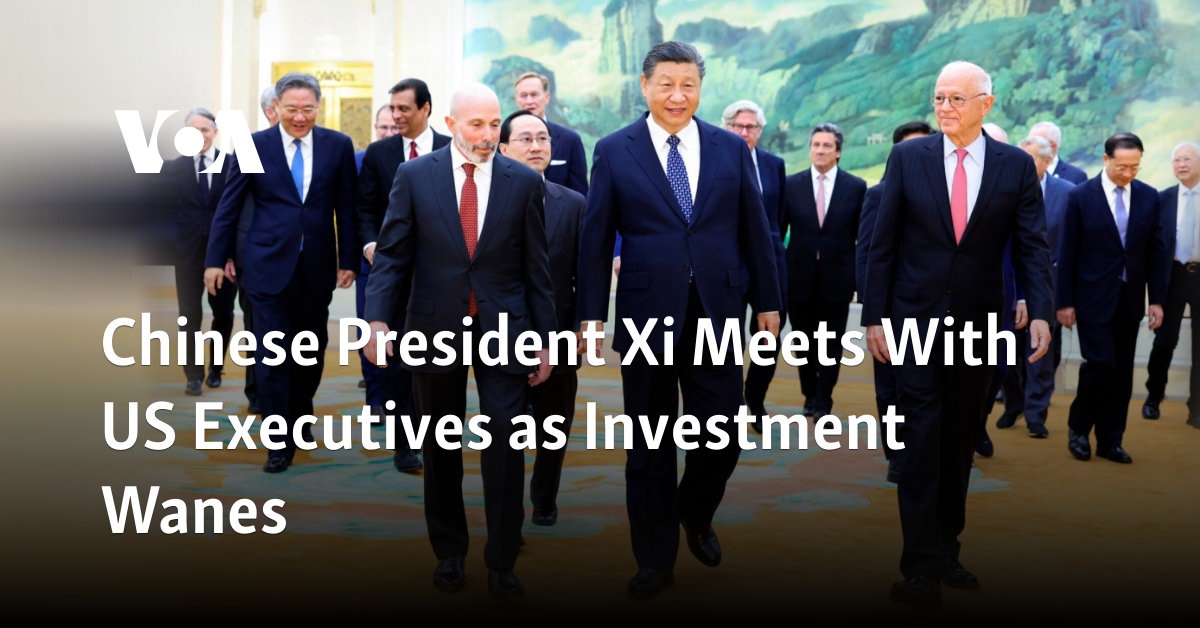China’s President Xi Jinping met American business leaders at the Great Hall of the People in Beijing on Wednesday, as the government tries to woo back foreign investors and international firms seeking reassurance about the impact of new regulations.
Beijing wants to boost growth of the world’s second-largest economy after foreign direct investment shrank 8% in 2023 amid heightened investor concern over an anti-espionage law, exit bans, and raids on consultancies and due diligence firms.
Xi’s increasing focus on national security has left many companies uncertain where they might step over the line, even as Chinese leaders make public overtures toward foreign investors.
“China’s development has gone through all sorts of difficulties and challenges to get to where it is today,” Xi said, according to state media.
“In the past, [China] did not collapse because of a ‘China collapse theory,’ and it will also not peak now because of a ‘China peak theory,'” he said.
Stephen Schwarzman, co-founder and CEO of private equity firm Blackstone, Raj Subramaniam, head of American delivery giant FedEx, and Cristiano Amon, the boss of chips manufacturer Qualcomm, were part of the around 20-strong all-male U.S. contingent.
The audience with Xi — organized by the National Committee on U.S.-China Relations, the U.S.-China Business Council and the Asia Society think tank — lasted around 90 minutes, according to a person with direct knowledge of the matter.
The source, who declined to be named as they were not authorized to speak to the media, had no immediate comment on what was discussed. The National Committee on U.S.-China Relations and Asia Society did not immediately respond to requests for comment on the meeting.
A statement from U.S.-China Business Council said the participants “stressed the importance of rebalancing China’s economy by increasing consumption there and encouraging the government to further address longstanding concerns with cross border data flows, government procurement, intellectual property rights, and improved regulatory transparency and predictability.”
The U.S. and China are gradually resuming engagements after relations between the two economic superpowers sank to their lowest in years due to clashes over trade policies, the future of democratically ruled Taiwan and territorial claims in the South China Sea.

